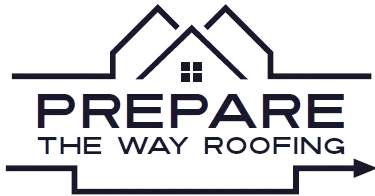Residential Roof Replacement & Repair FAQ
How do I know if I need a roof replacement or a repair?
The decision to repair or replace your roof depends on factors like its age, the extent of the damage, and the overall condition. Signs you may need a replacement include:
- The roof is at the end of its lifespan (typically 20-25 years for asphalt shingles).
- Shingles are curled, cracked, buckling, or missing.
- You notice excessive granule loss from asphalt shingles in your gutters.
- There are widespread water stains on your ceilings or walls.
- The roof deck is sagging.
For minor, localized issues like a few missing shingles or a small leak, a repair may suffice. A professional inspection is the best way to get a clear recommendation.
How long does a typical roofing project take?
Most residential roof replacements can be completed in one to three days, though this can vary based on the size and complexity of the roof, the number of stories, the slope, and weather conditions.
Do I need to be home during the roofing work?
You are not required to be home, but it is recommended to be available by phone in case the crew has any questions.
What should I do to prepare for a roof replacement?
To ensure a smooth and safe process, we recommend:
- Moving vehicles and other items away from the work area.
- Covering or moving sensitive plants and shrubs near the house to protect them from falling debris.
- Securing pets and keeping children indoors during the work.
Removing fragile items from walls and shelves inside your home, as vibrations can cause them to fall.
What kind of permits are needed for a roofing project?
In most of the towns we serve (Cary, Greensboro, Apex, Holly Springs, and Wake Forest), a building permit is required for a new roof installation. Your roofing contractor should handle the process of obtaining all necessary permits.
Commercial Roofing Services FAQ
How often should I have my commercial roof inspected?
We recommend a professional inspection at least twice a year—in the spring and fall—to catch minor issues before they become major problems. Inspections are also crucial after any severe weather events.
What are some signs that my commercial roof needs attention?
Warning signs for a commercial roof include damaged flashing, water spots on ceilings, a sagging roof deck, or the growth of moss and vegetation.
What types of materials are used for commercial roofs?
Commercial roofing systems differ from residential ones. Common materials include TPO, PVC, modified bitumen, and metal roofing. The best choice depends on your building's specific needs, budget, and local climate.
Do you offer financing options for commercial projects?
Many commercial roofing companies offer financing options, such as loans, to help businesses manage the cost of a new roof. It's best to discuss financing directly with your chosen contractor.
Insurance Restoration Roofing FAQ
Will my homeowners' insurance cover a new roof?
We recommend a professional inspection at least twice a year—in the spring and fall—to catch minor issues before they become major problems. Inspections are also crucial after any severe weather events.
Should I call my insurance company or a roofer first?
We recommend calling a roofer for a free inspection first. A qualified roofer can determine if the damage is severe enough to justify a claim. If no major damage is found, you can avoid filing a claim that could negatively impact your claims history.
What is the difference between Actual Cash Value (ACV) and Replacement Cost Value (RCV) policies?
An ACV policy pays for the depreciated value of your roof, meaning the payout is based on the roof's age and condition.
An RCV policy covers the full cost of replacing your roof with a new one of similar quality. With an RCV policy, you will initially receive the ACV amount, and then a second payment for the "recoverable depreciation" once the work is completed.
Can I choose my own roofing contractor?
Yes, you have the right to choose your own contractor. You are not required to use a company recommended by your insurance provider. Selecting a local, trusted company ensures high-quality work and allows you to have an advocate who can work with the adjuster to ensure all damage is properly documented.
Pressure Washing FAQ
Is pressure washing safe for my property?
Yes, when performed by experienced professionals. We use a "soft washing" technique, which utilizes low pressure and eco-friendly cleaning solutions to safely and effectively remove dirt, grime, mold, and mildew without causing damage to your home's exterior surfaces, including siding, wood, and concrete.
How often should I have my property pressure washed?
The ideal frequency depends on your property's specific needs and local climate. We generally recommend annual pressure washing to maintain your property's appearance and prevent the accumulation of harmful contaminants.
What should I do to prepare for pressure washing?
To prepare for the service, we ask that you:
- Ensure all windows and doors are securely shut.
- Move any vehicles, patio furniture, and other items away from the work area.
- Keep pets and children indoors during the process.
- Ensure we have access to a working outdoor water spigot.
Do you use eco-friendly cleaning solutions?
Yes. We prioritize environmental responsibility and use only eco-friendly, biodegradable cleaning solutions that are safe for your plants, pets, and the surrounding ecosystem.

